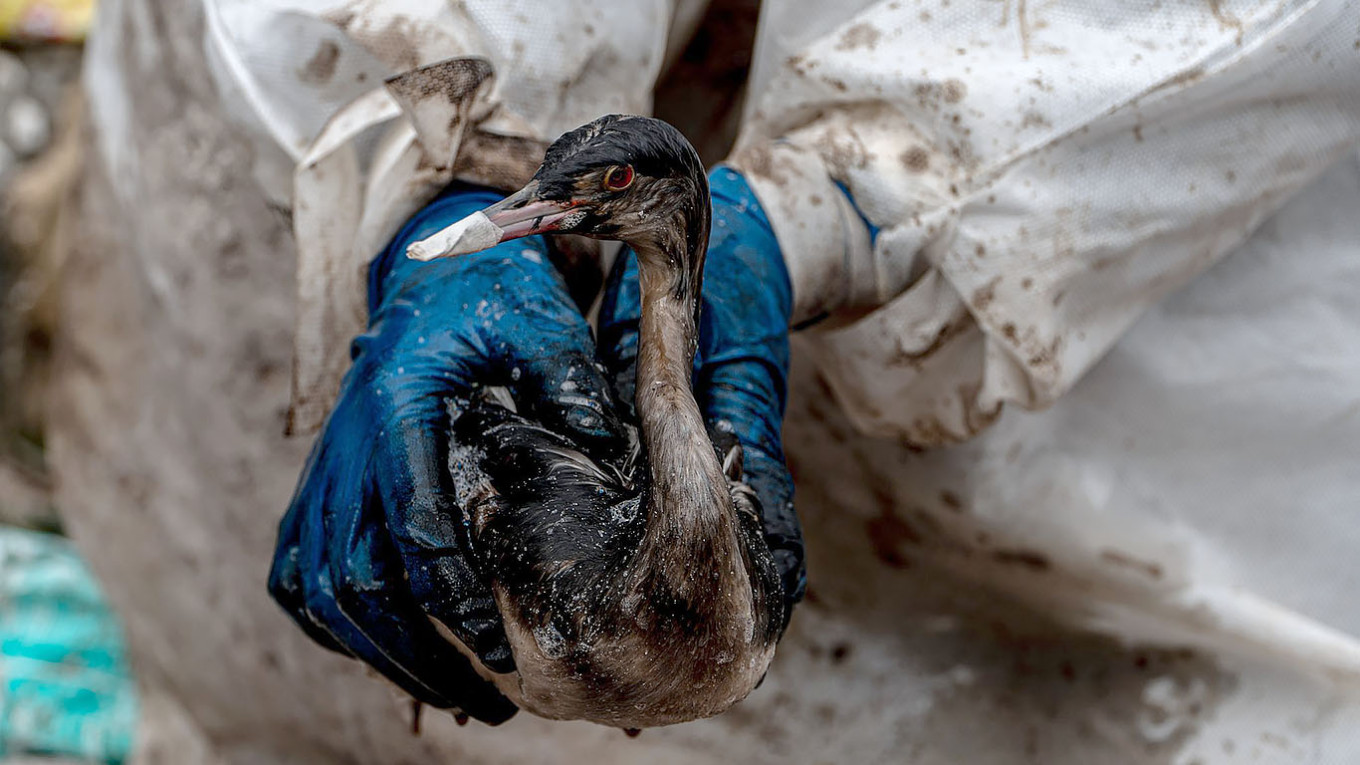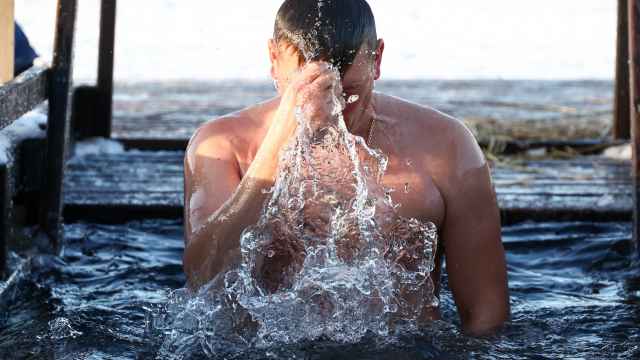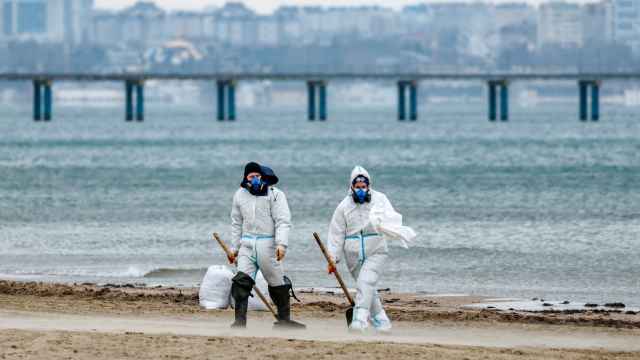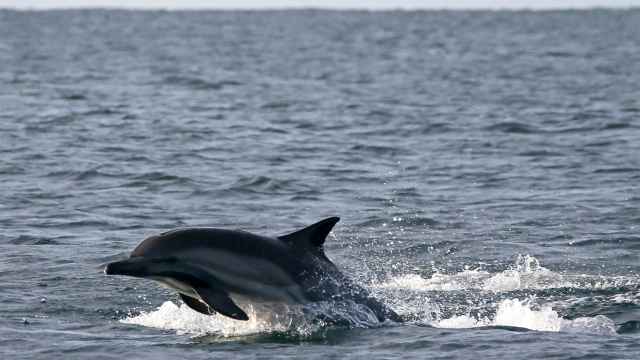More than a month has passed since two two oil tankers began leaking thousands of tons of oil into the Black Sea after being damaged in a storm. The spill prompted Russian authorities to declare a federal emergency, with some scientists calling it the worst environmental disaster to hit the country in the 21st century.
An army of volunteers and emergency workers has been tirelessly cleaning globs of heavy fuel oil from the coastlines of southern Russia and annexed Crimea. Alongside these efforts, they’ve been racing to save wildlife affected by the disaster, rescuing thousands of birds.
One heartwarming viral video captured a rare moment of hope amid the devastation: a rescued swan hugging a tearful volunteer just before being released back into the wild. However, not all wildlife impacted by the spill have been as lucky.
The Moscow Times explains why the Black Sea oil spill has been so devasting for seabirds.
‘Tip of the iceberg’
Animals, especially seabirds, are facing some of the worst impacts of the oil spill. Between 15,000 and 20,000 birds are estimated to have died so far, though Ukrainian biologist Ivan Rusev told Radio Free Europe/Radio Liberty (RFE/RL) that he believes this is just the “tip of the iceberg.”
Birds covered in oil have been found as far away as Georgia’s Black Sea coast. Even those taken to rehabilitation centers, cleaned and released often struggle to survive. While some experts claim up to 70% of rehabilitated birds survive, Rusev believes the number is closer to 10%, with survivors facing significant risks.
At the Pelikan Center, a Russian seabird rehabilitation facility, only 175 of the 1,051 birds received have survived so far, and 95% of those admitted on a single day in January died.
One particularly tragic incident occurred on Jan. 4, when volunteers released 160 rehabilitated birds at a wildlife refuge in southern Russia. The next day, 60 of those birds were found dead at the same site, according to the independent environmental news outlet Kedr.
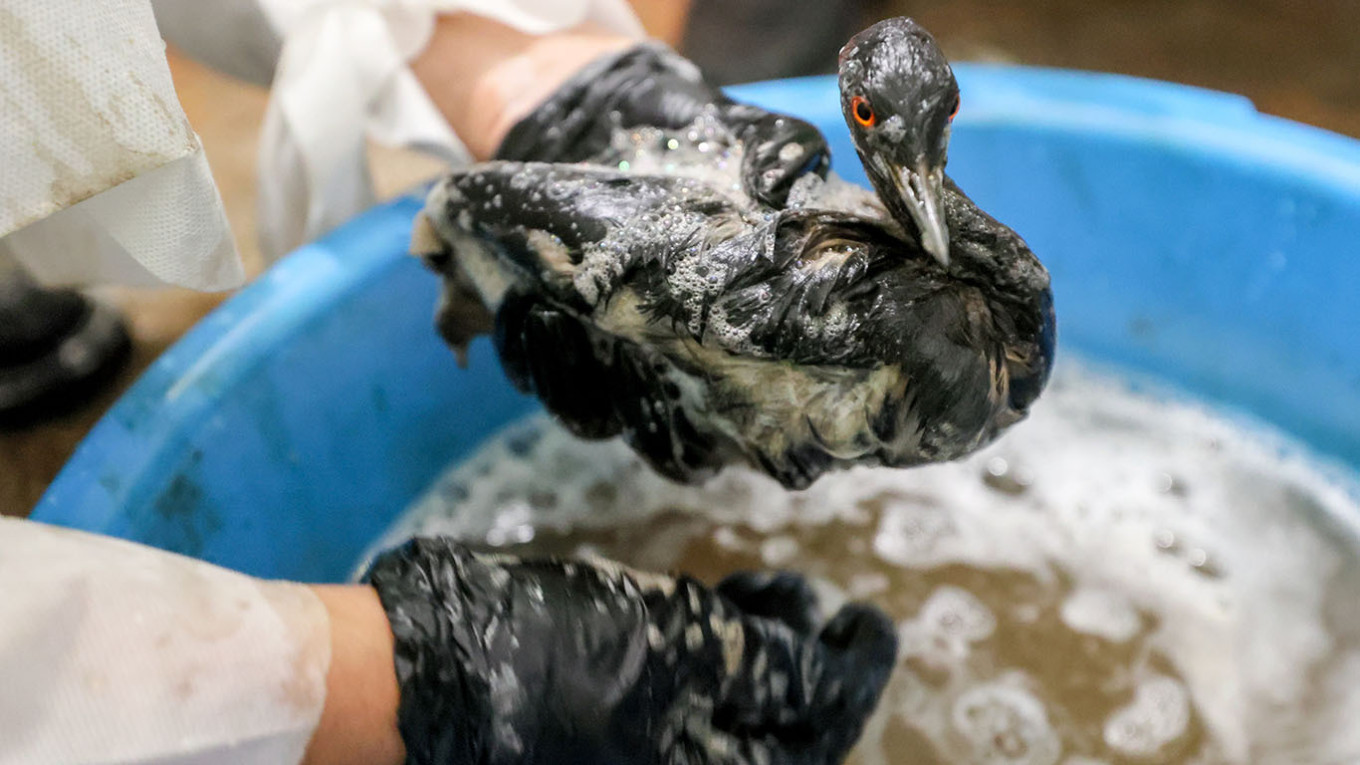
Why are oil spills so harmful to birds?
Seabirds’ adaptations for life on the water make them especially vulnerable to oil spills, according to the U.S. National Oceanic and Atmospheric Administration.
- Plumage damage: oil mats the feathers that keep birds warm and waterproof, leaving them exposed to the cold and wet.
- Ingestion of oil: birds instinctively preen to clean their feathers, but in doing so, they ingest oil, which can poison them and damage their internal organs.
- Toxic fumes: vapors from the oil can cause respiratory problems.
- Hindered mobility: covered in oil, birds struggle to fly, hunt or escape predators.
Unable to feed themselves or escape danger, many birds quickly succumb to these effects.
Can rehabilitated birds survive?
Cleaning and rehabilitating oiled birds is a delicate process. It involves cleaning their feathers with dish soap, providing food and water, and monitoring their health before release. Experts recommend releasing them in clean areas far from the spill, ideally within a week of rehabilitation.
However, this process is fraught with challenges. Many birds require large quantities of fish daily, which rehabilitation centers struggle to provide. Some experts argue that six days is too short for birds’ feathers to regain their natural water-repellence, while others believe keeping birds in captivity too long can harm their health.
Adding to the difficulty, the full extent of oil ingestion often is not apparent. Field veterinarians using microscopes and ultrasounds have found widespread liver damage, heart issues and other complications among rescued birds.
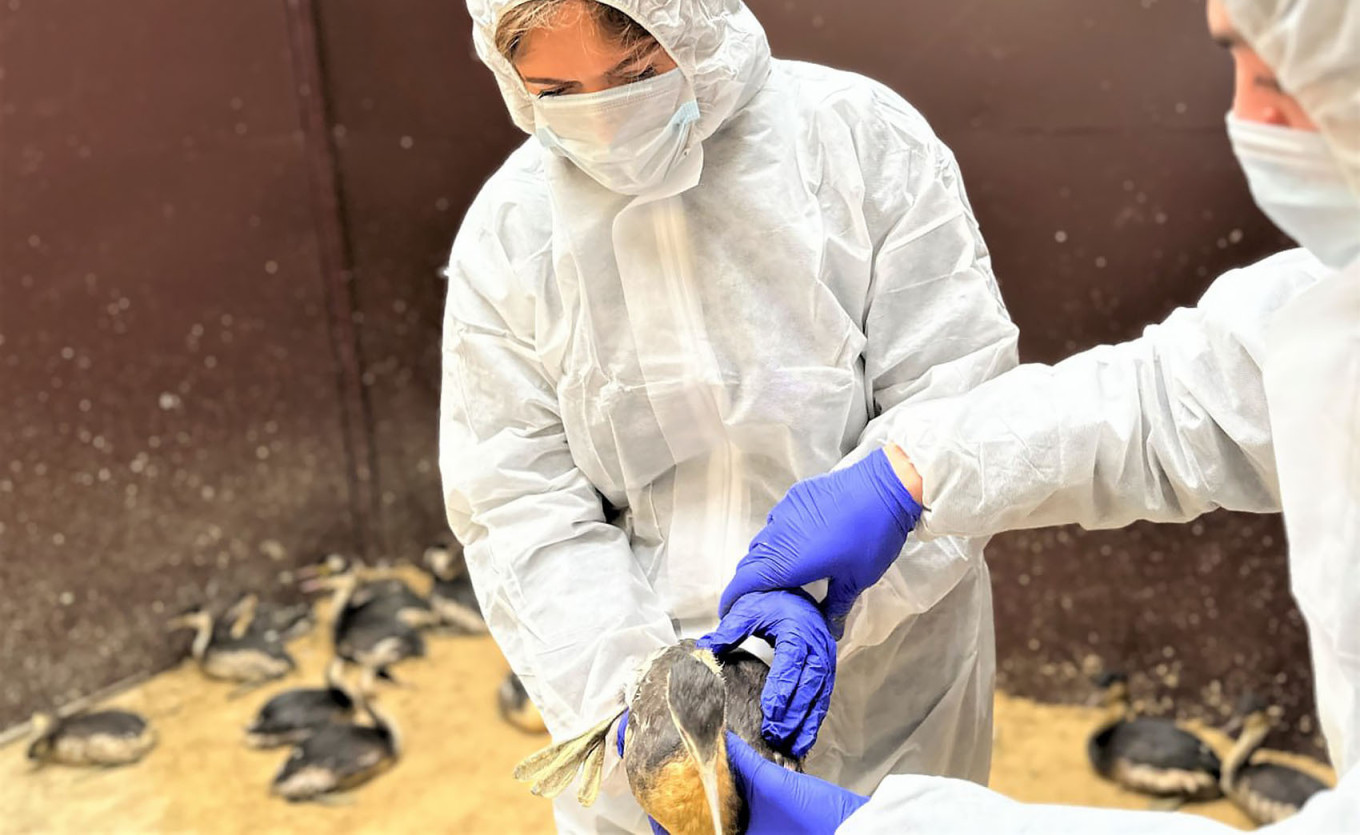
How long will birds continue to be at risk?
One major issue is that the sea remains polluted, meaning birds risk becoming covered in oil again. In addition, previous spills have shown that even birds released in clean areas can suffer lingering health problems, including liver and stomach damage.
Some experts told Kedr that they were cautiously optimistic that the situation along the Black Sea coast could improve in the spring when migratory birds leave for their northern nesting grounds. But until the cleanup is complete, the oil spill will continue to endanger seabirds and other marine life in the area.
A Message from The Moscow Times:
Dear readers,
We are facing unprecedented challenges. Russia's Prosecutor General's Office has designated The Moscow Times as an "undesirable" organization, criminalizing our work and putting our staff at risk of prosecution. This follows our earlier unjust labeling as a "foreign agent."
These actions are direct attempts to silence independent journalism in Russia. The authorities claim our work "discredits the decisions of the Russian leadership." We see things differently: we strive to provide accurate, unbiased reporting on Russia.
We, the journalists of The Moscow Times, refuse to be silenced. But to continue our work, we need your help.
Your support, no matter how small, makes a world of difference. If you can, please support us monthly starting from just $2. It's quick to set up, and every contribution makes a significant impact.
By supporting The Moscow Times, you're defending open, independent journalism in the face of repression. Thank you for standing with us.
Remind me later.



